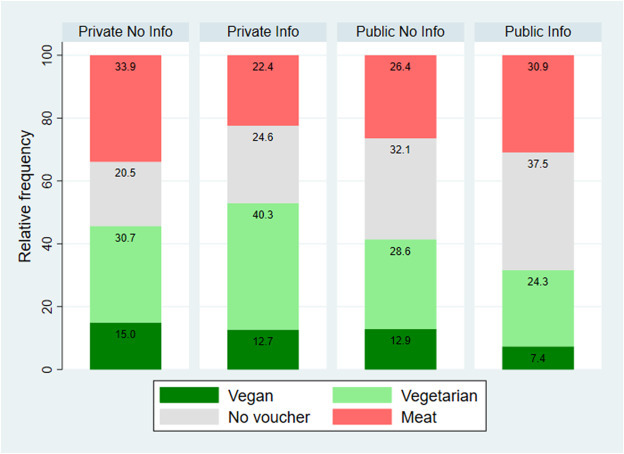



Study: Social control does not lead to meat abstinence - on the contrary
The University of Kassel conducts a study to observe consumer choices with social controlPeople who are reminded of the environmental consequences of meat consumption are more likely to avoid it - this result of an experiment at the University of Kassel was to be expected. Surprisingly, however, social control does not have this effect. On the contrary.

The production of animal products generates more climate-damaging gases than the cultivation of plant-based foods; it is therefore often said that consumers should eat a vegetarian or vegan diet more often in order to help achieve climate targets. A study by scientists at the University of Kassel now suggests that people do not - as one might assume - give up meat when their fellow human beings find out about their choice of meal. Instead, more people actually decided against vegetarian and vegan products.
The experiment was conducted by Eva Weingärtner and Prof. Dr. Astrid Dannenberg from the Department of Environmental and Behavioral Economics at the University of Kassel. They asked students to choose which type of sandwich they would like to receive as a gift (as a supposed thank you for completing a task): meat, vegetarian or vegan. Four representative groups were formed under different conditions: They were each reminded of the environmental impact of meat or not, and told that their decision would or would not be made public. 537 responses were received.
As expected, this showed that behavior was influenced by a reference to the environmental balance: The likelihood of choosing the sandwich with meat fell by 12 percentage points among the "informed" as a result. However, this reduction was almost exclusively driven by the female participants. For them, the proportion of meat vouchers fell from around 35 percent to around 15 percent, while for men it only fell from around 33 percent to 27 percent. "The result that women seem to be more flexible in their dietary choices is something we see more often in the literature," says Astrid Dannenberg.
The announcement of the choice had the paradoxical effect that not more, but fewer participants opted for vegetarian or vegan sandwiches - especially when the announcement was combined with information about the environmental impact. A conspicuously large number of people decided to forgo the sandwich altogether.
To explain this, the researchers pointed to three possible reasons: "Firstly, the concern that displayed moral behavior could be perceived as artificial. Secondly, the concern that moral behavior could meet with disapproval from others because they would feel caught out and would have to question their own behavior," says Eva Weingärtner. However, it is also possible that the prospect of social control provokes a certain rebelliousness in many participants.
The results have now been published in the Journal of Environmental Economics and Management. You can find the study here: https://doi.org/10.1016/j.jeem.2023.102829



